Working with men to expand abortion access
Traditional male and female gender roles often deny women the power to make their own reproductive health decisions. While Ipas works to educate women about their reproductive rights and to ensure health services are available, these efforts alone do not guarantee a woman can access contraception or an abortion when needed. Deeper social change is necessary to create an environment in which women and girls have the agency and support to take control of their reproductive lives. That’s why Ipas also works to educate men on the importance of gender equity and the crucial role they can play as partners, family members, community leaders and professionals.
Gender
At Ipas, we recognize there is a range of gender identities held by people who have abortions. We recognize too that abortion, lack of access to it, and the stigma that surrounds it, affect everyone, regardless of gender.
Gender, as defined by the World Health Organization, refers to the characteristics of women, men, girls and boys that are socially constructed. Gender identity refers to an individual’s sense of self, and their experience of gender, whether that is man, woman, neither or both.
Traditional social norms around gender create social, economic and health inequities, including inequitable access to reproductive health care, including abortion.
Making change through traditionally male-dominated spheres
When men and women have accurate information about reproductive health care, including safe abortion, everyone benefits. Men can play many different roles in a woman’s path to accessing safe abortion. They can be important allies, providing practical support—helping with fees, transportation or childcare, for example—and emotional support, like listening to their partners and supporting their decisions. Or they can be barriers to care: seeking to control a partner’s behavior, especially as it relates to reproductive health decisions; physically or sexually abusing a partner; or making a safe abortion logistically impossible. By reaching men in spheres that are traditionally male-dominated—like the police force, military and groups of male community elders—Ipas is working to create social change by challenging gender norms that deny women power.
In Ghana, we trained police on the legal indications for abortion so they can support women in accessing this service at a police-run hospital in Accra. In Bolivia, we’re training new classes of military recruits on harmful male stereotypes and how men can challenge a culture of toxic masculinity and be supportive partners and advocates for women’s reproductive rights. And in India, we’re engaging with community elders to build support for women’s reproductive health care, so that young women in villages will be supported in seeking out services.
Working with police in Ghana to support women’s access to safe abortion
Photos by Nicholas Seun Adatsi
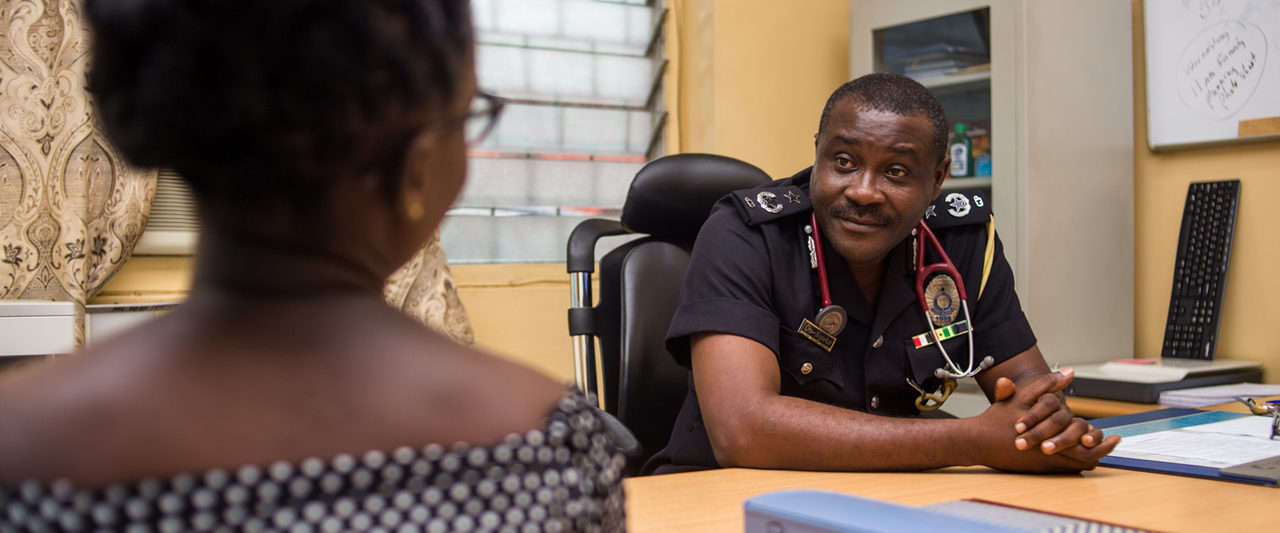
Dr. Samuel Otu-Nyarko—a deputy commissioner of police and senior physician specialist at Ghana Police Hospital in Accra—was “totally against abortion” before connecting with Ipas. Now, he works in a hospital, counseling women on reproductive health options, including safe abortion. He also meets with church groups, youth groups and policemen and their families to discuss reproductive health care.
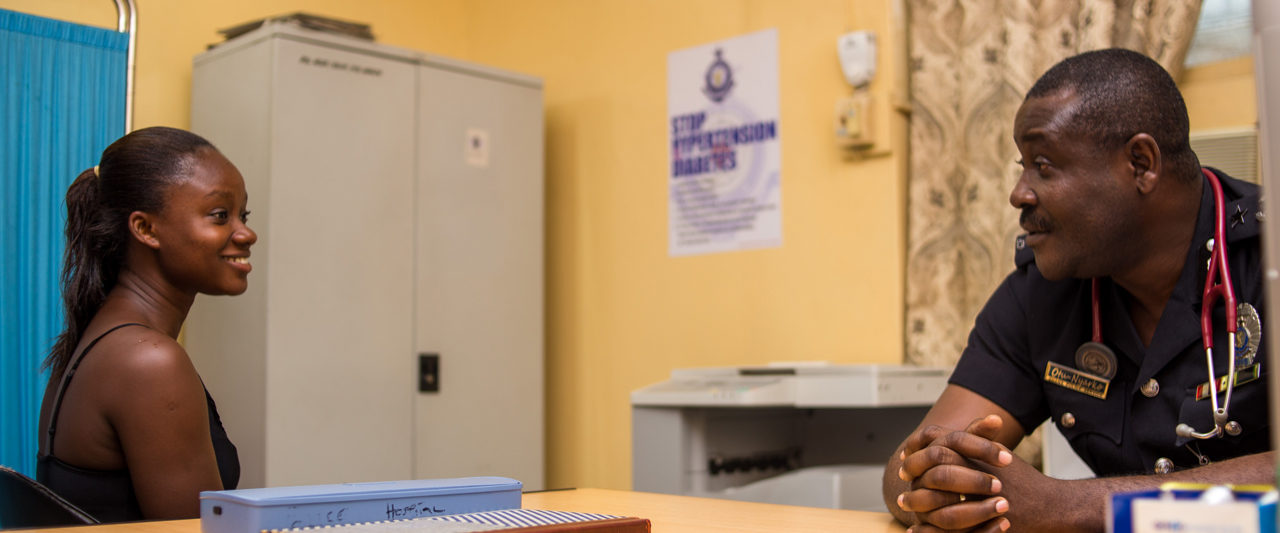
Otu-Nyarko said he is gratified by the response from people seeking abortion care at Ghana Police Hospital: “One woman [not pictured] was referred to our facility. After, she was so happy that she came to my office and hugged me. It was a very powerful message—initially she didn’t believe that we were providing abortion care.”
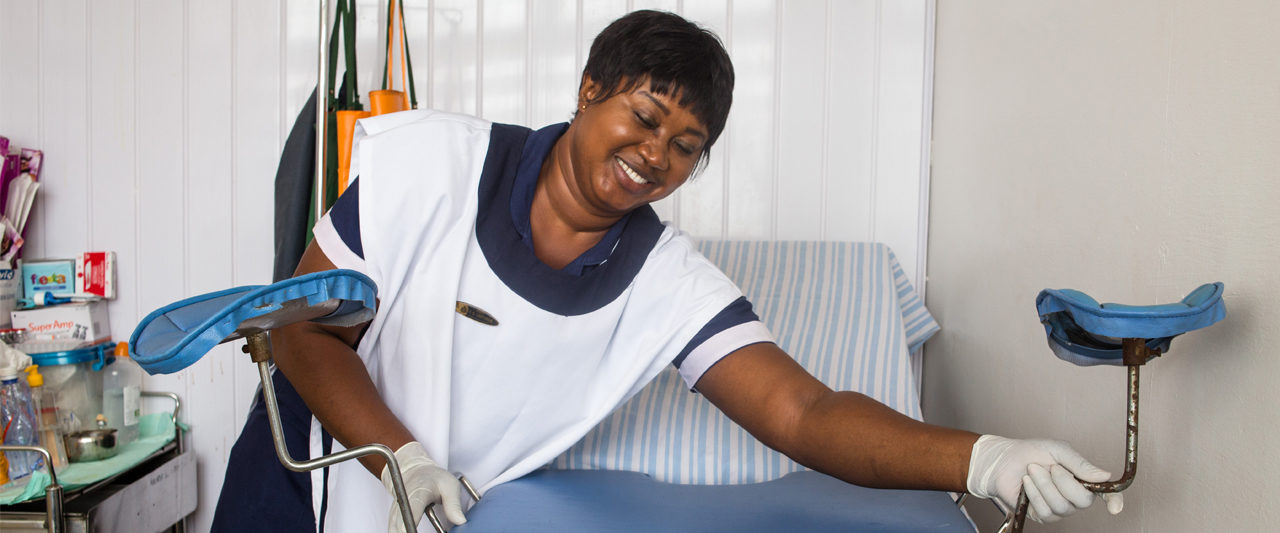
Ipas supported safe abortion services at Ghana Police Hospital, in a designated room. “If abortion was illegal, we wouldn’t provide it in our hospital. So now people can truly understand that it’s legal,” says Otu-Nyarko.
“
When police help educate the public about safe abortion, “people accept it more. The benefits are immense—we’ve made a big impact.
– Dr. Samuel Otu-Nyarko
*2022 update: Ipas no longer has an office in Ghana
Training Bolivian military recruits to challenge toxic masculinity
In Bolivia, Ipas works with men in the military to confront stereotypes around masculinity—such as that “real men” don’t use contraception or help a partner deal with an unwanted pregnancy—and to learn how and why to be supportive partners for women seeking abortion care. Messages about sexual and reproductive health and rights are now embedded into existing military trainings.
Colonel Jorge Salim Guzmán Bustillos is chief of training for the Bolivian army’s third division and has served in the military for 27 years. “It is very important for soldiers to be able to conduct themselves well, in their future lives, once they leave the barracks,” which means they must have knowledge of topics related to sexual and reproductive health and rights, he says.
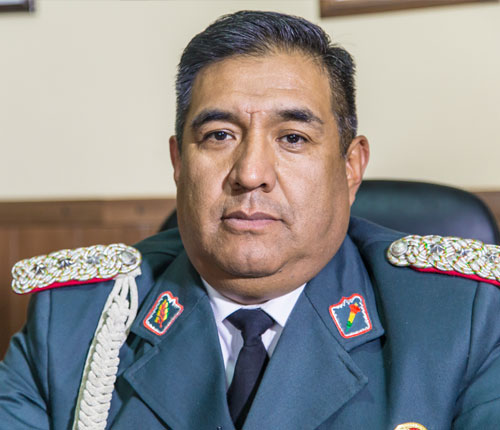
PHOTO BY ARIEL DURANBOGER
Our intention is to change the way these men think, because otherwise these problems will drag on from one generation to the next.
Colonel Jorge Salim Guzmán Bustillos
Partnering with Indian community elders to reach men with reproductive health information
In India, Ipas Development Foundation (IDF) collaborates with male community elders—called Mankis and Mundas—to inform local men about sexual and reproductive health. The elders play multifaceted roles in their communities: settling land disputes, participating in marriage ceremonies, and supporting health programs, like the project with IDF. Rameshwar Bodra is a Manki in rural Ulidih village, in the state of Jharkhand.
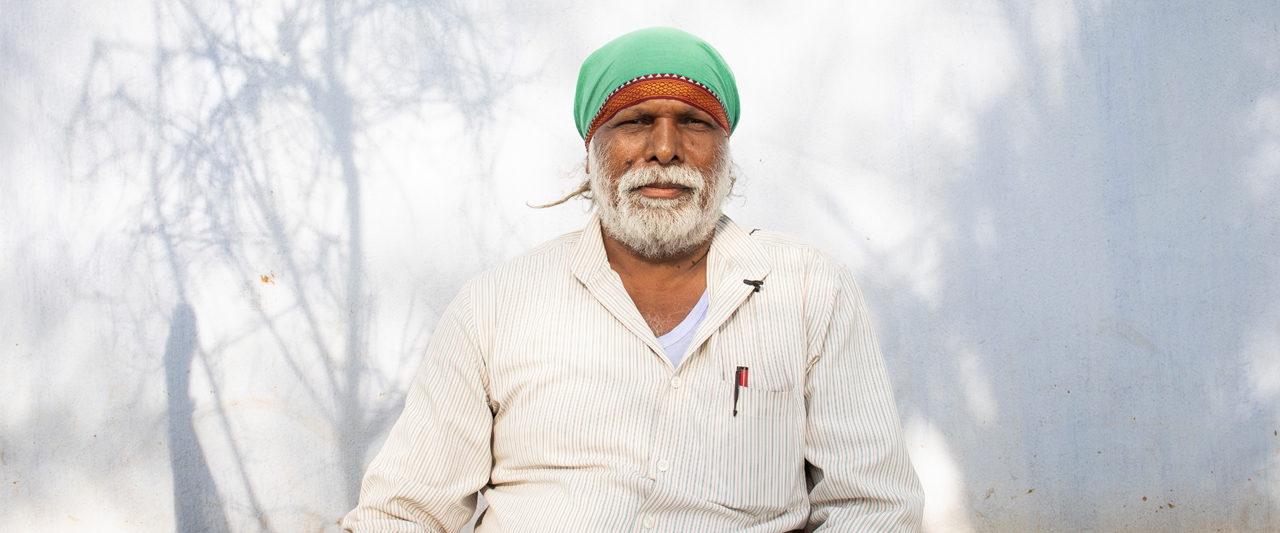
© SANKAR SARKAR PHOTOGRAPHY
“
The issues pertaining to reproductive health are personal. People don’t discuss them openly. The Mundas [male community leaders] can play a significant role in reaching out to men.
— Manki Rameshwar Bodra
Harnessing the power of youth leaders
While traditional gender roles persist in societies around the world and limit women’s reproductive freedom, young people are increasingly taking a stand against these limitations and advocating for gender equity. They see how traditional gender roles are harmful to both men and women, and they envision a world where men are equal partners and allies in the fight for women’s reproductive rights.
Ipas knows that partnering with youth leaders and youth-led organizations is crucial if we want to expand access to safe abortion. That’s why we train young people in India—both men and women—to be peer educators on reproductive health. In Bolivia, we support university students working to challenge harmful gender stereotypes and advocate for abortion law reform. And in Ghana, we were guided by the wisdom and insights of the young people on our Ipas Ghana Youth Advisory Board.
Training young men in India to teach others about reproductive health
Photos by Sankar Sarkar Photography
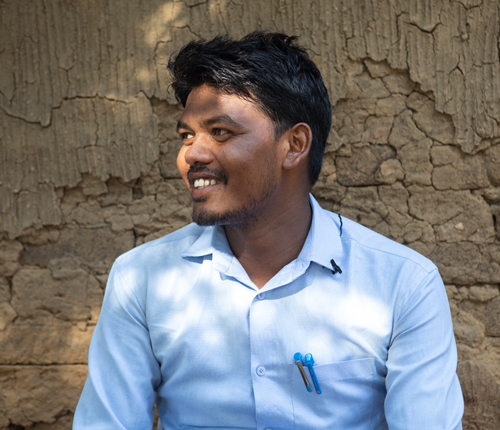
PHOTO BY ARIEL DURANBOGER
Working on this project, I feel really good. The health information that is being given to men … those men listen to us carefully and are interested in listening.Durga Charan Munda, youth leader
Read more about the male youth leaders creating social change around abortion
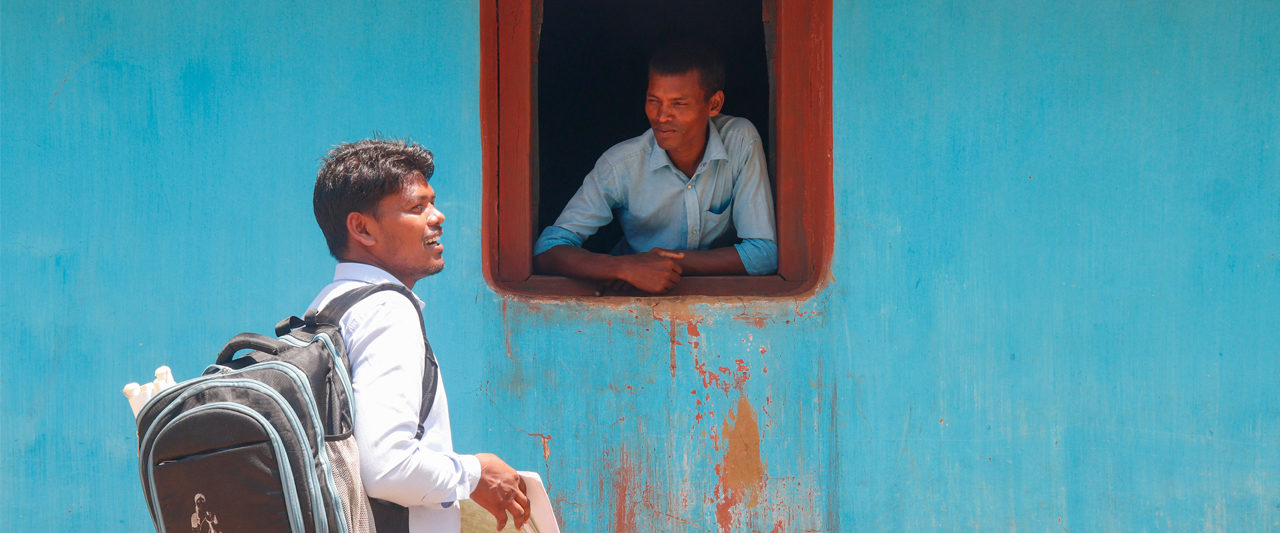
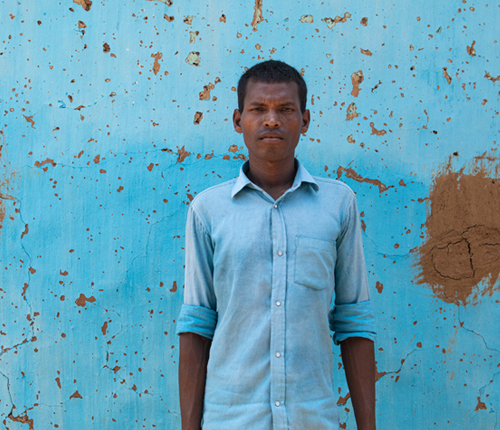
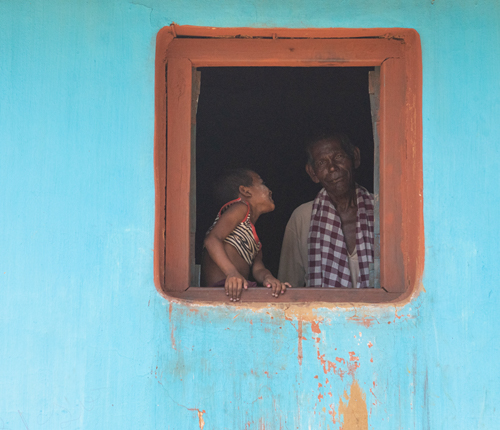
Youth leader and educator Durga Charan Munda (top) speaks with Bir Singh Munda (bottom left) at his home in Dwarparam Village in Jharkhand State, India. Their one-on-one conversation about sexual and reproductive health covers topics like contraception and preventing unwanted pregnancy—part of a strategy to spread important health information throughout the community and to show men how they can be supportive partners to women who need reproductive health care.


Youth leader Durga Charan Munda walks miles with his toolkit to inform other men in his rural village about sexual and reproductive health. He says many young men he speaks with do not know about things like how to use contraception or that abortion is legal and available at health centers. Charan Munda works for the locally based Center of Social Welfare and Rehabilitation and received training from Ipas Development Foundation.
“
The most inspiring thing about working on this project is the participation of men in the rights of young women regarding sexual and reproductive health,”
– Durga Charan
University students in Bolivia work to challenge gender stereotypes
Alexander Huayta Lugarani and his girlfriend Kosset Anahi Mamani Coaquira are among a group of motivated student leaders at Public University in El Alto, Bolivia, working to break down machismo and show young people that men can play a crucial role in supporting women’s reproductive rights—including the right to safe abortion. Lugarani says he’s always had leadership potential, but it blossomed through Ipas-supported trainings for young men on masculinity and the importance of challenging harmful gender stereotypes.
“
Ipas has rekindled [my leadership abilities] and has made me aware of my potential to effect social change. This type of training is of vital importance to a leader.
– Alexander Huayta Lugarani
‘It’s the start of something new in our society’
As part of its ongoing work to educate men on the importance of gender equity and the need to eliminate violence against women, Ipas Bolivia launched a public awareness campaign during the most recent national Men’s Day in Bolivia. These efforts included participation in a march organized by the Active Masculinities Network to raise awareness about gender-based violence and confront stereotypes about masculinity. As one marcher said, “We reinforced our commitment as men to women. Why? Because we have sisters, we have families, we have mothers.”
Ipas youth advisors in Ghana know men’s participation is crucial
Photos by Nicholas Seun Adatsi
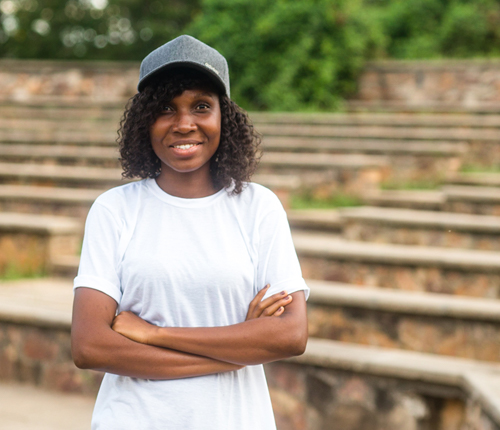
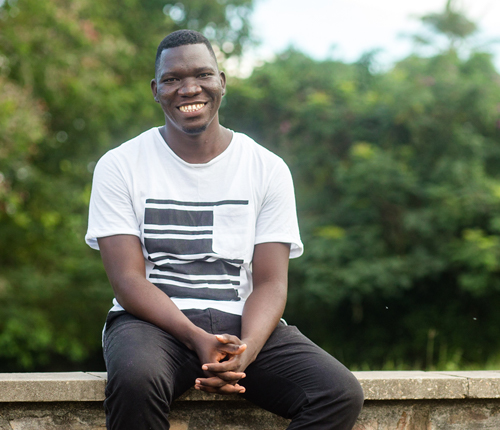
Aku Dzifa Amenyedzi (left) and Samuel Lamptey (right) are passionate about helping young people thrive. As members of Ipas Ghana’s Youth Advisory Board, they provided valuable perspectives on how Ipas programs could expand young women’s access to safe abortion. One key component: supportive male allies and advocates for women’s rights.
“
For men’s involvement, it’s so important … that there will be a support system for women.
– Aku Dzifa Amenyedzi
*2022 update: Ipas no longer has an office in Ghana

